The Importance of Ethical Lumber Sourcing
- August 22, 2024
- 0 comment
Lumber sourcing is a critical component of the forestry industry, involving the extraction, processing, and distribution of timber from forests to markets. This process, while essential for numerous industries, directly impacts ecosystems and communities globally. The way lumber is sourced can vary widely, from large-scale industrial operations to small, community-managed forests. However, the methods used to obtain timber are crucial to determining the long-term health of our forests and the well-being of those who depend on them.
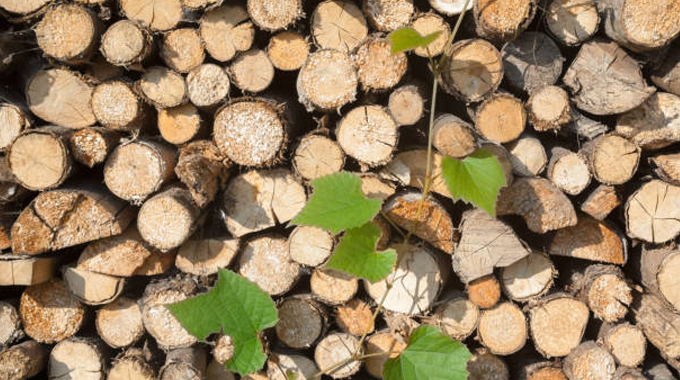
Table of Content
- Understanding Ethical Lumber Sourcing
- Environmental Benefits of Ethical Lumber Sourcing
- Social and Economic Impacts
- Challenges in Ethical Lumber Sourcing
- Consumer Responsibility and Corporate Accountability
- FAQs
Understanding Ethical Lumber Sourcing

Definition and Principles
Ethical lumber sourcing is defined by principles that prioritize sustainability, legality, and transparency. Sustainability involves harvesting timber in a way that does not deplete forest resources or harm ecosystems. This means adhering to practices that allow forests to regenerate naturally and continue to provide ecological benefits. Legal sourcing ensures that timber is obtained in compliance with national and international laws, avoiding illegal logging that can devastate forests and communities. Transparency involves clear communication and documentation throughout the supply chain, allowing consumers to trace the origins of the lumber and verify its ethical credentials.
Key Certifications and Standards
Several certifications and standards have been established to promote and verify ethical lumber sourcing. The Forest Stewardship Council (FSC) is one of the most recognized, setting rigorous criteria for responsible forest management. The Programme for the Endorsement of Forest Certification (PEFC) also provides a framework for sustainable forestry, focusing on local solutions and community involvement. These certifications ensure that timber products meet high environmental and social standards, providing consumers with confidence that their purchases support ethical practices.
Legal vs. Ethical Sourcing
While legal sourcing is a baseline requirement, it does not necessarily equate to ethical sourcing. Legal lumber is obtained in accordance with laws, but these laws may not always fully protect forests or communities. Ethical sourcing goes beyond legality, incorporating considerations of environmental stewardship, social responsibility, and long-term sustainability. It requires a commitment to practices that respect ecosystems, human rights, and future generations, setting a higher standard than legal compliance alone.
Environmental Benefits of Ethical Lumber Sourcing
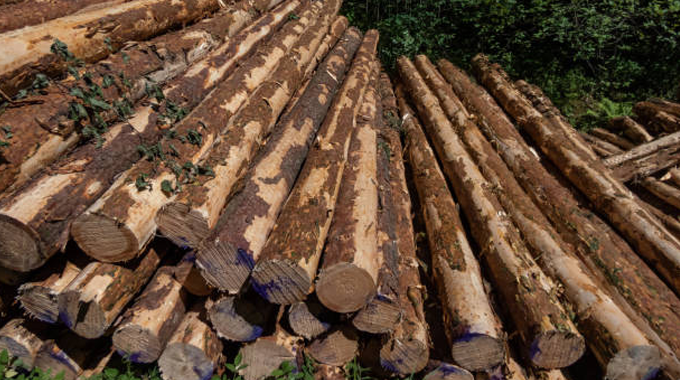
Preservation of Forest Ecosystems
Ethical lumber sourcing plays a crucial role in preserving forest ecosystems. By adhering to sustainable harvesting practices, it ensures that forests can continue to function as vital habitats for countless species. This preservation helps maintain biodiversity, protect watersheds, and stabilize soils, all of which are essential for the health of the planet. Ethical sourcing also helps prevent deforestation, a major driver of climate change and habitat loss.
Carbon Sequestration and Climate Change
Forests are one of the most effective natural carbon sinks, absorbing large amounts of carbon dioxide from the atmosphere. Ethical lumber sourcing supports this function by maintaining forest cover and promoting reforestation. Sustainable forestry practices help reduce carbon emissions associated with deforestation and forest degradation, making ethical lumber sourcing a key strategy in combating climate change. By protecting forests, we are also protecting the planet’s ability to regulate the climate.
Reducing Habitat Destruction
Responsible lumber sourcing minimizes habitat destruction by carefully managing the impact of logging activities. This includes selecting trees for harvest in a way that avoids fragmenting habitats, protecting critical areas, and ensuring that logging operations do not disturb wildlife unnecessarily. By reducing habitat destruction, ethical sourcing helps maintain the ecological balance and ensures that forest-dependent species can thrive.
Social and Economic Impacts
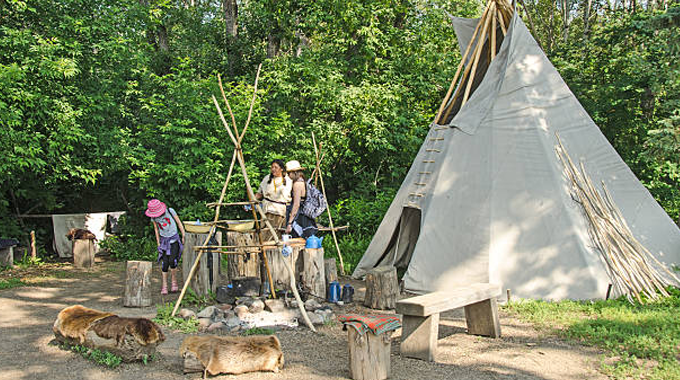
Supporting Indigenous Communities
Ethical lumber sourcing respects the rights and knowledge of indigenous communities, who have often managed forests sustainably for generations. By involving these communities in decision-making processes and sharing the benefits of timber resources, ethical sourcing supports their livelihoods and cultural heritage. This approach not only promotes social justice but also draws on indigenous knowledge to enhance sustainable forestry practices.
Fair Labor Practices
In addition to environmental concerns, ethical lumber sourcing prioritizes fair labor practices. This includes ensuring that workers in the timber industry receive fair wages, work in safe conditions, and are treated with dignity. By upholding these standards, ethical sourcing contributes to social equity and helps build a more just and sustainable industry.
Economic Stability in Forest Regions
Ethical sourcing practices contribute to the economic stability of forest regions by promoting long-term resource management. Rather than exploiting forests for short-term gains, ethical sourcing focuses on maintaining forest health and productivity over time. This approach creates steady income streams for local communities and businesses, supporting sustainable development and reducing the economic pressures that lead to deforestation.
Challenges in Ethical Lumber Sourcing
Identifying and Overcoming Obstacles
Despite its importance, ethical lumber sourcing faces significant challenges. Illegal logging, corruption, and weak enforcement of laws are major obstacles. Additionally, the complexity of global supply chains can make it difficult to ensure that timber is sourced ethically at every stage. Overcoming these challenges requires stronger regulations, increased transparency, and greater collaboration among stakeholders, from governments to industry leaders to consumers.
The Role of Technology
Technology offers promising solutions to some of the challenges in ethical lumber sourcing. Tools like blockchain can provide a secure and transparent way to track timber from forest to market, ensuring that it meets ethical standards. Satellite monitoring can help detect illegal logging and track changes in forest cover, allowing for more effective enforcement of sustainable practices. By leveraging these technologies, the timber industry can enhance the integrity of its supply chains and promote ethical sourcing on a larger scale.
Global Market Pressures
The global demand for timber puts pressure on forests and can undermine ethical sourcing efforts. Meeting this demand while maintaining sustainable practices requires careful balancing. It also calls for increased consumer awareness and demand for ethically sourced products. Companies must navigate these pressures while staying committed to ethical practices, a challenge that requires both innovation and resolve.
Consumer Responsibility and Corporate Accountability
The Power of Consumer Choice
Consumers have a powerful role to play in promoting ethical lumber sourcing. By choosing products with certifications like FSC or PEFC, consumers can drive demand for sustainably sourced timber. This, in turn, encourages more companies to adopt ethical practices. Educating consumers about the importance of ethical sourcing is essential to fostering a market that supports responsible forestry.
Corporate Social Responsibility (CSR)
Corporate Social Responsibility (CSR) is a key driver of ethical lumber sourcing. Companies that prioritize CSR integrate sustainable practices into their operations, from sourcing to production to distribution. These companies recognize that their long-term success depends on the health of the forests they rely on and the communities they serve. By adopting ethical sourcing as a core business principle, companies can contribute to a more sustainable and equitable world.
Frequently Asked Questions (FAQs)
1. What is ethical lumber sourcing?
Ethical lumber sourcing refers to the practice of obtaining timber in a way that prioritizes sustainability, legality, and transparency. It involves harvesting trees in a manner that does not harm the environment, respects the rights and well-being of local communities, and ensures that the entire supply chain is free from illegal or unethical practices.
2. Why is ethical lumber sourcing important?
Ethical lumber sourcing is crucial because it helps protect forest ecosystems, supports biodiversity, reduces carbon emissions, and safeguards the rights of indigenous and local communities. It also ensures that the timber industry contributes positively to global environmental and social goals rather than causing harm.
3. What are some key certifications for ethical lumber sourcing?
The Forest Stewardship Council (FSC) and the Programme for the Endorsement of Forest Certification (PEFC) are two of the most recognized certifications for ethical lumber sourcing. These certifications set high standards for sustainable forest management, ensuring that timber products meet environmental, social, and economic criteria.
4. How does ethical lumber sourcing benefit the environment?
Ethical lumber sourcing helps preserve forest ecosystems, supports carbon sequestration, and reduces habitat destruction. By following sustainable practices, ethical sourcing ensures that forests continue to thrive, maintaining their role as critical habitats for wildlife and as natural carbon sinks.
5. What is the difference between legal and ethical lumber sourcing?
Legal lumber sourcing means that timber is obtained in compliance with local and international laws. However, ethical sourcing goes beyond legality, incorporating principles of sustainability, social responsibility, and transparency. Ethical sourcing ensures that all aspects of timber production and trade contribute positively to the environment and society.
6. How does ethical lumber sourcing impact local communities?
Ethical lumber sourcing respects the rights of indigenous and local communities, ensuring they benefit from the resources of their lands. It promotes fair labor practices, provides economic stability, and supports the long-term well-being of communities that depend on forestry for their livelihoods.
7. What are the challenges of ethical lumber sourcing?
Challenges include illegal logging, lack of transparency, and the complexity of global supply chains. Overcoming these obstacles requires stronger regulations, technological innovations like blockchain and satellite monitoring, and collaboration among all stakeholders in the timber industry.
8. How can consumers support ethical lumber sourcing?
Consumers can support ethical lumber sourcing by choosing products that are certified by organizations like FSC or PEFC. By demanding ethically sourced timber, consumers encourage companies to adopt sustainable practices and contribute to the preservation of forests and communities.
9. What role do companies play in ethical lumber sourcing?
Companies play a crucial role by integrating ethical practices into their supply chains. Through Corporate Social Responsibility (CSR) initiatives, companies can commit to sourcing timber responsibly, ensuring that their operations align with environmental and social standards.
10. Are there examples of companies successfully practicing ethical lumber sourcing?
Yes, companies like Patagonia and IKEA have made significant strides in ethical lumber sourcing. They source timber from certified forests and work closely with suppliers to maintain high standards of sustainability and social responsibility, setting examples for the industry.

Gilbert Griffin
Forestry AuthorGilbert Griffin is a forest management expert specializing in sustainable practices, forest health, conservation, and land management. With extensive knowledge in pest control, disease management, and habitat restoration, Gilbert develops strategies to preserve forest ecosystems and biodiversity. Passionate about the natural world, Gilbert adapts to changes in forest management and stays updated through continuous learning. Gilbert also provides seasonal advice to optimize forest care throughout the year.


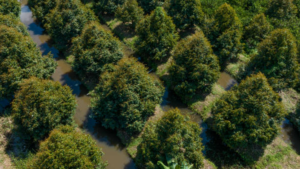
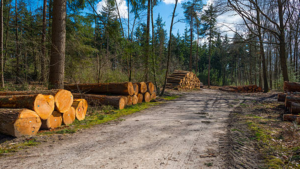



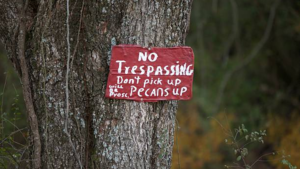





Leave your comment